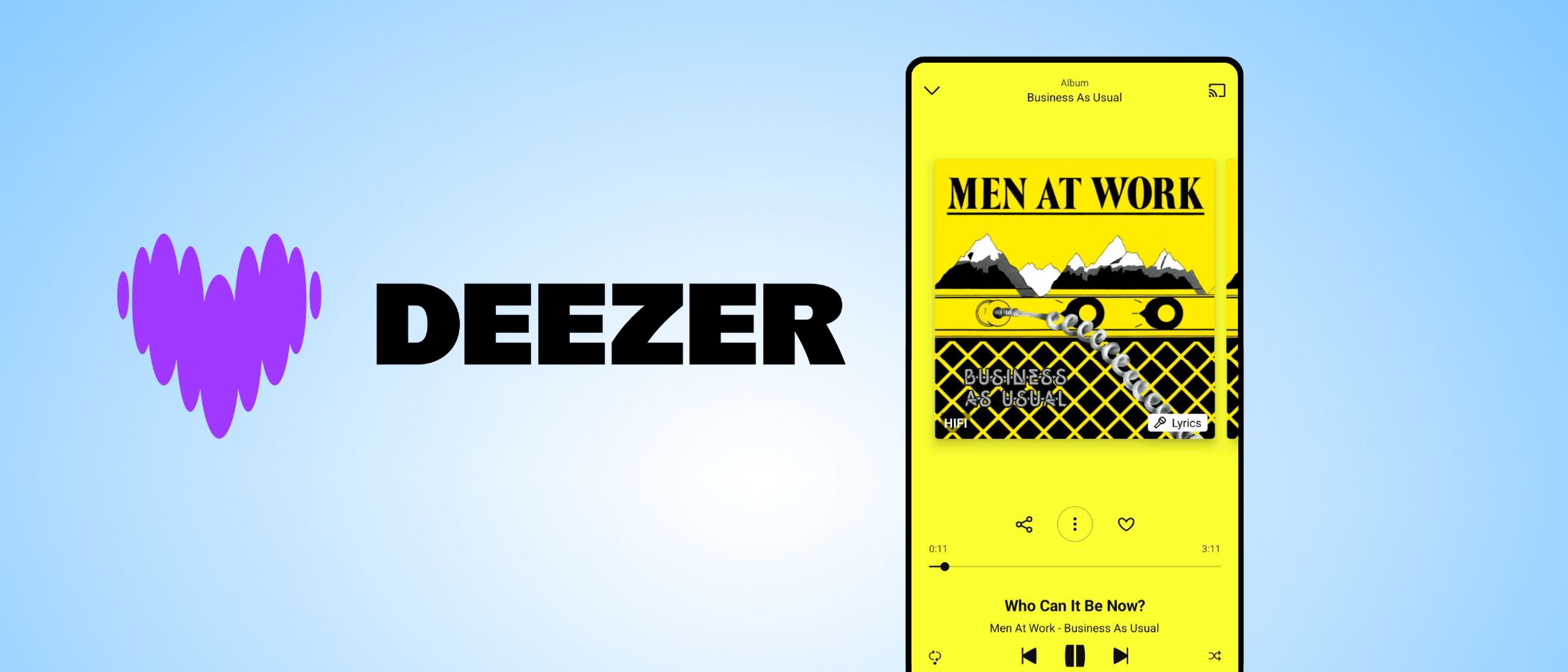Tom's Guide Verdict
Deezer is the fun, party animal of the music streaming world. Its apps are coloful and fun, it’s smothered in style, and it’s just asking to be cranked loud thanks to excellent streaming quality. It’s the social features that really make the app stand out though, with great playlist options and extra music-based activities to enjoy like music quizzes you can share with fellow Deezer users.
Pros
- +
Reasonably sized library
- +
Well priced
- +
Colorful, fun apps
- +
Great social functions
Cons
- -
No bitrate readout for nerds
- -
Other lossless services sound better
- -
Recommendations aren’t as smart
Why you can trust Tom's Guide
As Spotify becomes ever more bloated with different additions to its features list, it’s very tempting to see what alternatives are out there. Better quality streaming from the likes of Apple Music and Tidal are definitely worth considering. Or maybe you want the out-and-out audiophile stylings and musical focus of Qobuz?
There’s also the French upstart, Deezer — and there are some great reasons you might want to switch over like CD-quality streams that sound better than the MP3s that Spotify plays and some fun social additions like collaborative playlists and music quizzes. It’s fun, it’s colorful, and you won’t miss podcasts like you do with Tidal or Qobuz.
But just how good is Deezer when compared to its competition, and is it one of the best music streaming platforms around today? Read our full Deezer review to find out how Deezer stacks up.
Deezer review: Price
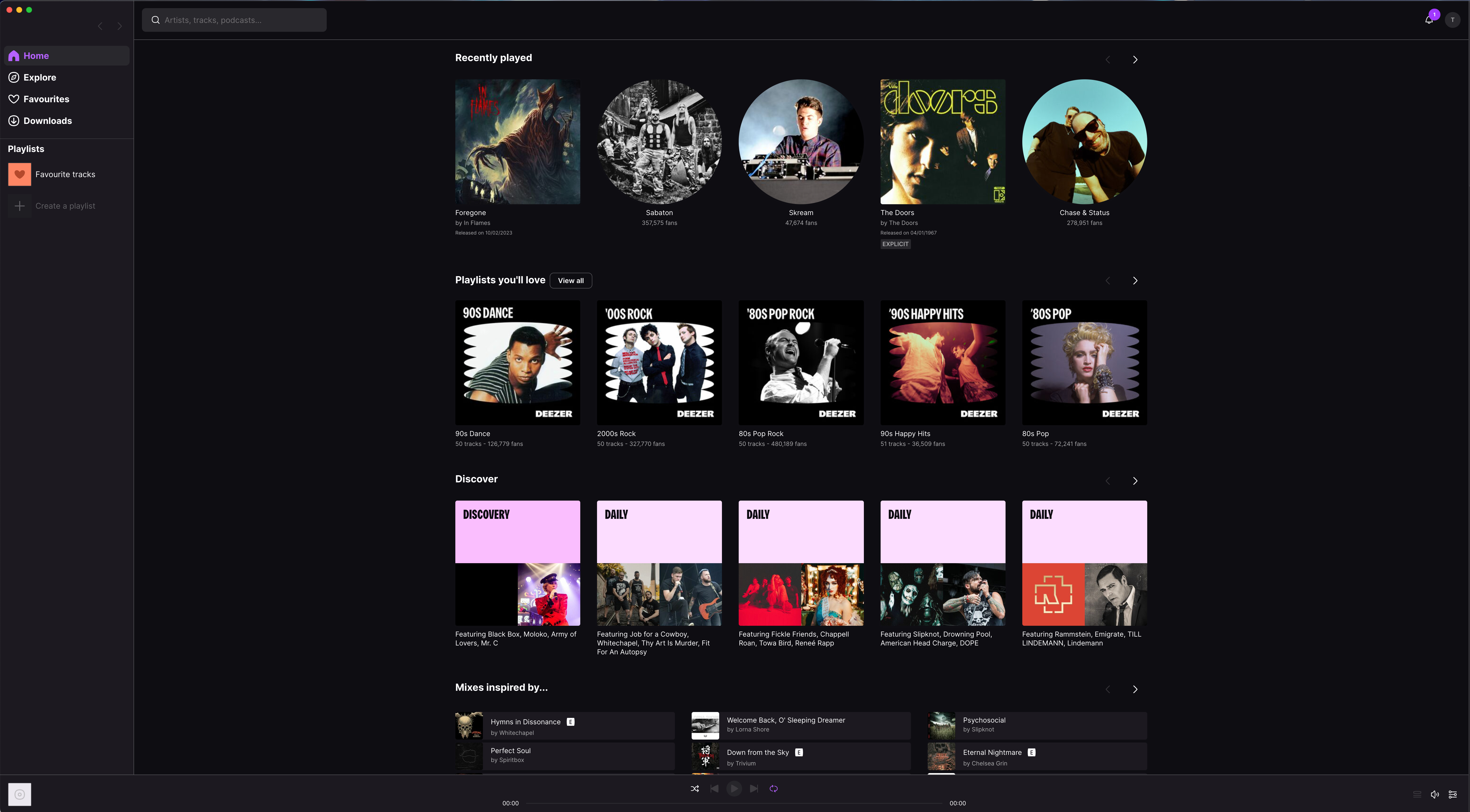
- There’s a free tier
- Annual options save money
There are two different tiers that you can choose from — a free subscription, or a paid sub that can be paid for monthly or yearly. The free sub doesn’t give you the most comprehensive streaming option, but it’s nice and accessible should the paid options be just too expensive for you. You’ll get access to the 120 million tracks on the service in MP3 quality, and you can make and listen to playlists. You’ll be bombarded with ads though, so your music will be interrupted while you listen. You can’t pick your tracks either — everything is done randomly.
Then there’s the paid option, which, like Tidal, Apple Music and Amazon Music Unlimited costs you $11.99 per month. For that price you get the same 120 million tracks and personalized playlists and mixes, but you'll also get access to a gamut of other features. Ads are banished to the great advertising agency in the sky, and you can choose what music you want to listen to. You can also save tracks for online listening, and there’s the HiFi CD-quality audio on offer for higher-quality streams. You also get access to some of the more unique features, like the fun music quizzes.
Here’s a breakdown of the yearly and monthly family discounts you can get with Deezer:
| Row 0 - Cell 0 | Deezer |
Premium | $11.99/£11.99/AU$13.99 (Per month) $107.91/£107.91 (Per year) |
Duo | $15.99/£15.99/AU$17.99 (Per month) $174.99/£174.99 (Per year) |
Family | $17.99/£19.99/AU$21.99 (Per month) $218.99/$218.99 (Per year) |
You end up saving money if you have multiple people using the same subscription plan with Deezer, although interestingly it is slightly more expensive than Qobuz and Tidal when bought this way. You really do save loads with the family plans of Qobuz though, although solo users are punished more. Either way, you pay a whole lot less than you do for Spotify.
Availability
- Apps everywhere
- Plenty of partner devices with Deezer Connect
There are Deezer apps available on all major platforms, including iOS, Android and iPadOS as well as desktop operating systems like MacOS and Windows. There’s a cohesive design throughout them all as well so you won’t get confused as to what each button does when you move around. All the features are available on all versions of the app as well, so you won’t miss out on anything if you listen on your iPhone instead of an Android phone, and vice versa.
There’s also Deezer Connect, which plays music on everything from a HomePod to a Google speaker. It’s similar to Spotify Connect and Tidal Connect, although, obviously, based around Deezer. There’s also Chromecast support, and you can hook it up to Roon if you’re a user of the audiophile home audio setup.
Deezer review: Features
- HiFi, CD-quality streams
- Plenty of social integration
- Podcasts built-in
If you’re looking for something more inclusive than the likes of Tidal, then Deezer might be the Spotify alternative you’re looking for. The only real omission here are audiobooks, but otherwise you’ve got almost everything else. Podcasts are included, and there are loads of extra social features that make things a whole lot more fun.
There are collaborative playlists that you can build with your friends, as long as they’re using Deezer as well. Deezer will suggest additions to the playlists as well, so you can discover new music without having to dip into another playlist to see what you might want to add. You can share your playlists and mixes on social media as well, so you can show everyone just how much you like listening to Britney Spear’s seminal hit, Hold Me Closer. You weirdo.
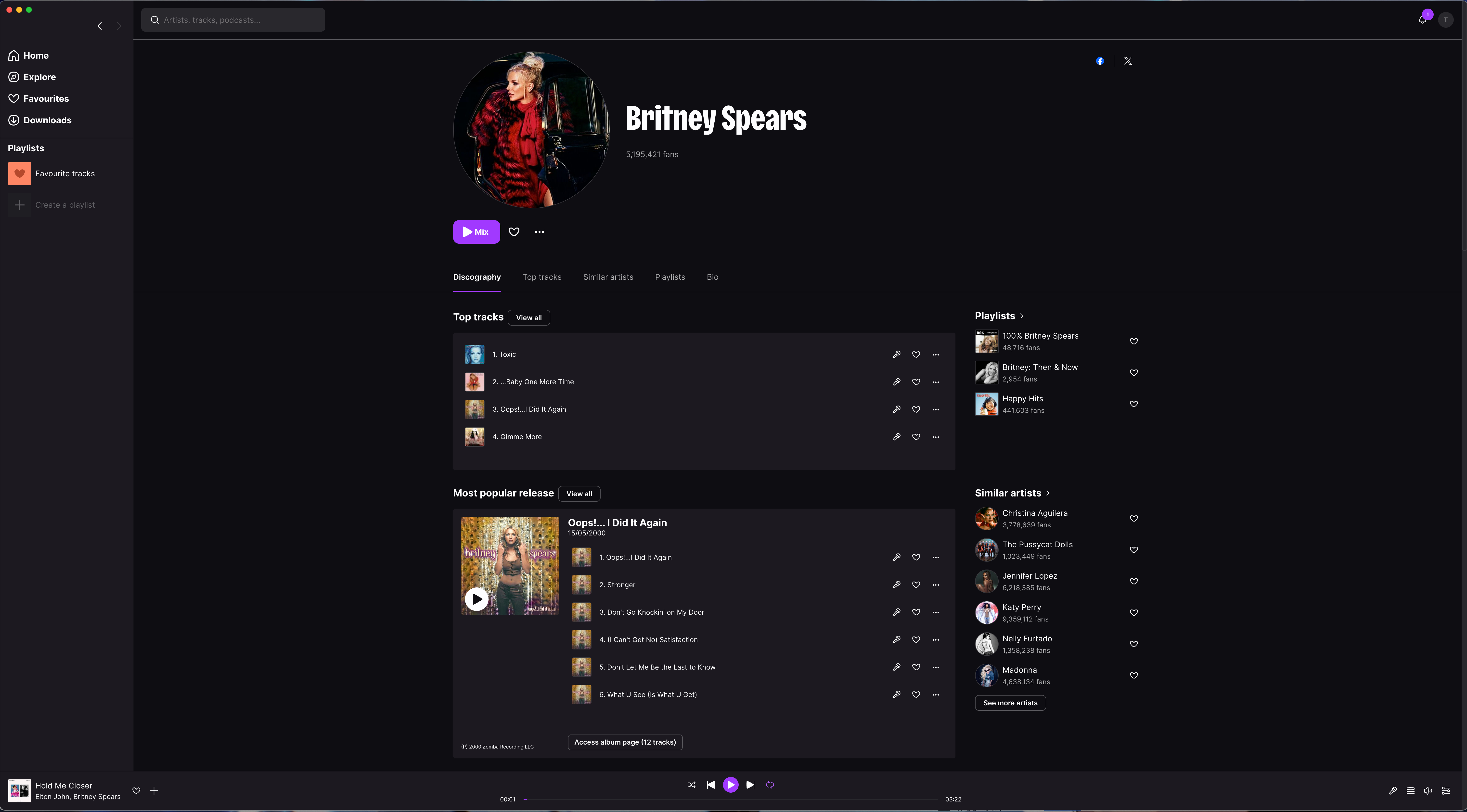
Unfortunately, those links will only take you to Deezer, so sharing with people using other streaming accounts isn’t going to do you much good. It would be nice to see a similar feature to Tidal’s sharing that takes you to your streamer of choice when you click a shared Tidal link — given Deezer’s focus on the social aspect of music, it wouldn’t surprise me if this makes an appearance at some point in the future. Until then, however, you’re stuck sending people to a streaming platform they might not use.
There’s HiFi streaming as well, although it’s not quite up there with the top options like Tidal or Qobuz. This is 16-bit, 44kHz music, so you won’t get the fully lossless versions of a track like with other streamers. For wired listeners, this is going to be a bit of a bummer, but wireless listeners who generally don’t benefit much from super-high-quality streams aren’t going to miss much.
One of my favorite features is the music quiz stuff: They’re curated quizzes that, you guessed it, play your music and you have to guess what the song is based on a multiple-choice answer set. It’s fun, and you can share your scores with other people using Deezer and join leaderboards to see how your musical knowledge stacks up with other users. It’s something totally unique, and there are plenty of quizzes to get stuck into with different answers each time to keep you coming back for more.
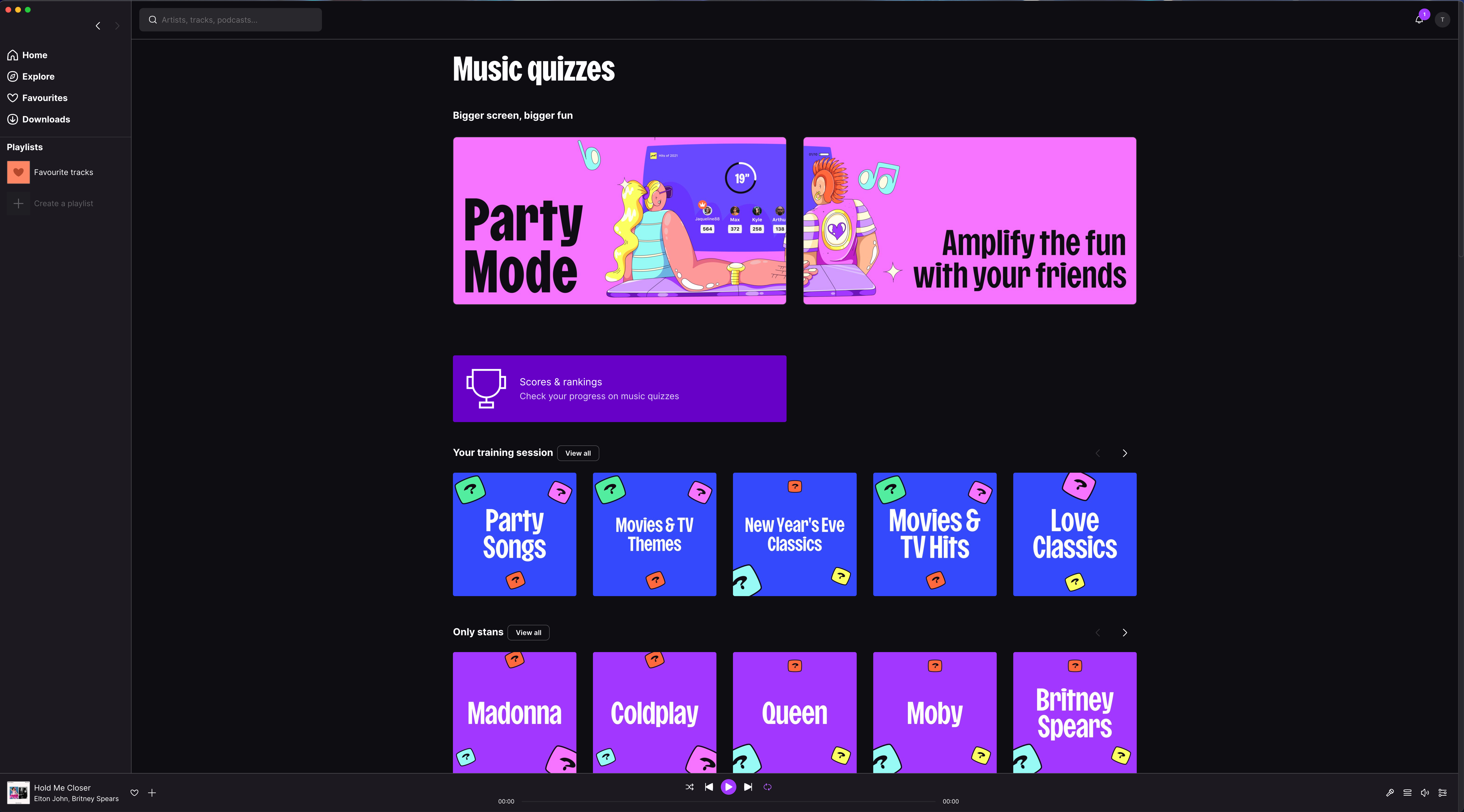
Other features include offline listening that's a helpful addition for those times the train goes through a tunnel, letting you save your favorite music on your device so that you can come back and listen to it when the internet has gone. Plus, thanks to those slightly smaller CD-quality FLACs, you won’t take up anywhere near as much of your internal storage as the top-quality tracks from Tidal or Qobuz either, although you’ll still use more than Spotify’s tiny MP3 files.
There are curated playlists and mixes you can listen to, made by experts in the genres at hand who work for Deezer. I found these a great way to find and discover new music, and they make the whole affair feel a lot more personal. There are also ‘playing next’ suggestions to keep the music playing when you finish an album or a playlist, but I didn’t find these as eerily on the mark as those I was given by Spotify. It’s nice to have though, and these things can only improve with time.
Deezer review: Sound Quality
- Not quite as good as Tidal and Apple Music
- Better than Spotify
Let’s get one thing clear right out of the gate — Deezer doesn’t sound as good as Tidal, Qobuz or Apple Music when listened to through the best HiFi gear around. Its CD-quality tracks lack some of the spaciousness and detail that you’ll find in the hi-res lossless tracks that are streamed on those other platforms. If you want the best-sounding music for your thousands of dollars of HiFi separates, then you’re much better off with Qobuz or Tidal — or a hard drive filled with terabytes of massive FLAC files.
Now that that’s out of the way and the audiophiles are out of the room, I can confirm that audio quality of Deezer is going to be just fine for almost everyone, and crucially, sounds much better than the music that Spotify plays for you. Thanks to the CD-quality audio you’ll hear more detail than you’ll find in a Spotify track, and there’s more space in the mix than you’ll notice with most headphones.
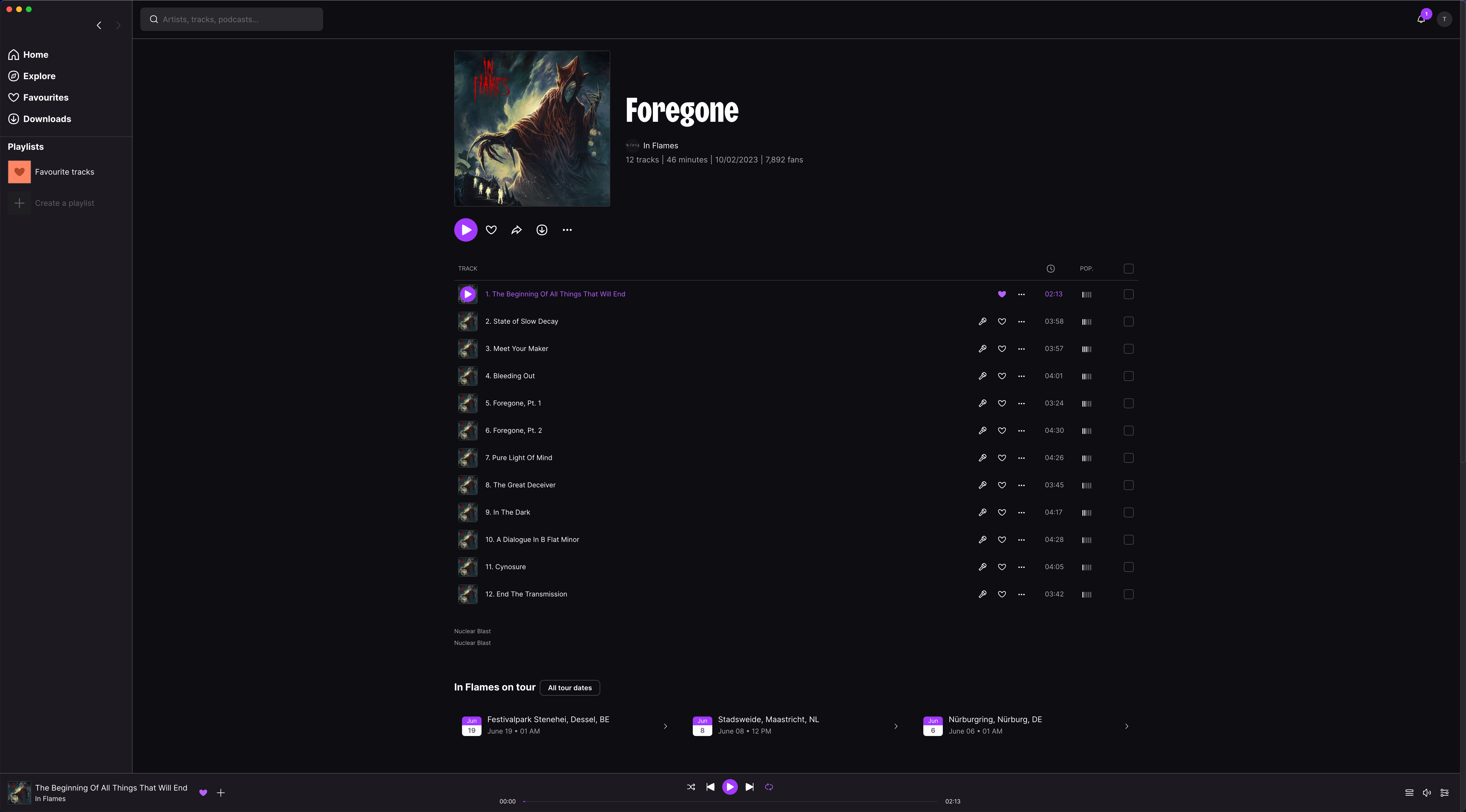
Given that most people are going to be listening to Deezer over their Bluetooth headphones, where CD quality is only possible with LDAC in use, the maximum streaming quality of Deezer is more than enough. You’ll still get the squelchy bass of No Limit from 2 Unlimited, the crunch of Metallica’s guitars in Welcome Home, and Chappel Roan’s soaring vocals in HOT TO GO. If you’re used to the low quality of Spotify, you’ll notice details you’ve never heard before and you’re unlikely to miss the extra detail of the higher-quality streams.
There is one thing you might miss from Apple Music and Tidal though — spatial audio. There’s no Dolby Atmos support here, which is a shame considering how both Apple Music and Tidal both offer the format with higher-quality streams. Given that more and more headphones are launching with spatial audio on board, it feels like a glaring omission if you don’t offer a tradeoff with something of equal value.
Deezer review: Verdict
There’s lots to love about Deezer. It’s got a look that’s unlike any of the other options, with a dark yet colorful aesthetic that screams ‘club night’. I love how it’s been built from the ground up to be as social as possible, with those collaborative playlists and music quizzes setting it apart from the more austere alternatives. The CD-quality streaming is a big bonus over Spotify, too.
But there are a couple of things to bear in mind, and they’re why it can’t get that full five stars quite yet. CD-quality audio, while fine, isn’t up to scratch with some of the competition. A lack of Spatial Audio could also take the edge off for some people, and the automatic recommendations still have some work to do when compared to Apple Music and Tidal.
Deezer is good, there's no doubt — but there are still better out there.
More from Tom's Guide

Tammy and her generous collection of headphones have found a new home — Tom's Guide! After a two-and-a-half-year stint as iMore's resident audiophile, Tammy's reviews and buying guide expertise have more focus than ever on Tom's Guide, helping buyers find the audio gear that works best for them. Tammy has worked with some of the most desirable audio brands on the planet in her time writing about headphones, speakers, and more, bringing a consumer focussed approach to critique and buying advice. Away from her desk, you'll probably find her in the countryside writing (extremely bad) poetry, or putting her screenwriting Masters to good use creating screenplays that'll never see the light of day.
You must confirm your public display name before commenting
Please logout and then login again, you will then be prompted to enter your display name.
